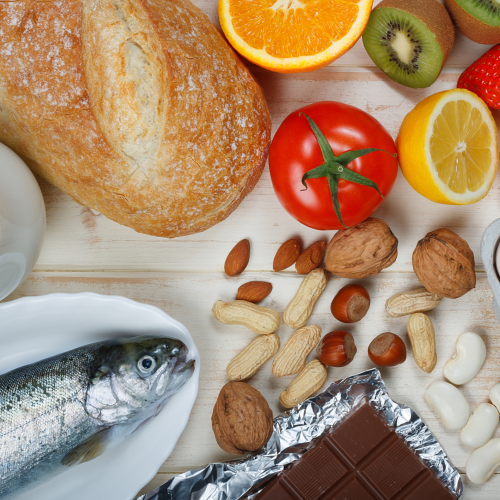7 Ways to Reduce Food Waste
With new food waste legislation coming into effect in March 2025, operators on the cusp of the 5kg cut-off mark are considering how to trim down waste. We’ve compiled a few simple ideas to get you started:
Take Note:
It may be obvious, but the first step in reducing food waste is to take note of what is regularly wasted. If your venue is consistently throwing away mouldy fresh fruit, then improving stock rotation and adjusting your order to smaller quantities at more regular intervals can be beneficial. Careful planning around what menu items are most popular, and what ingredients are required for these meals can also help chefs easily adjust their ordering to reduce waste.
Tinned & Frozen Food:
Where possible, operators could look at incorporating tinned and frozen products into their menus to eliminate complex expiry logistics. Considering products which are more likely to be tinned, such as jackfruit, nopalitos, and plantain, means operators can introduce more exotic food items to the menu. Utilising tinned and frozen goods also enables operators to order in bulk to take advantage of deals and reduce food miles.
Stock Rotation:
Best practice systems such as first-in, first-out (FIFO) stock rotations are common in many foodservice venues. This guarantees oldest stock is used first, minimising the risk of food rotting before use, or being pushed to the back of the fridge and forgotten about. It also makes it easier for chefs to keep track of stock for ordering purposes.
Proper Storage:
Optimum storage conditions can significantly impact products’ shelf life. When it comes to dry store ingredients, open packs should be stored in an airtight container and clearly labelled with an opening date. In cold storage, ideal temperatures are even more specific:
Fresh meat: -2oC - +2oC
Fresh fish: -1oC - +1oC
Dairy: +2oC - +5oC
Other chilled food: +5oC
Frozen products: -18oC and below.
This helps maintain food quality and shelf life, prevents bacteria, and has the added benefit of ensuring refrigerators and freezers are working efficiently – reducing running costs and improving appliance longevity.
Good Hygiene:
Closely related to proper storage, operators should ensure high levels of hygiene throughout kitchens and implement regular cleaning of all equipment, including ovens, fridges, and microwaves. Should these vital tasks be missed, harmful bacteria can cause perishable food items to spoil more rapidly, potentially causing a chain reaction with other stored goods and ramping up unnecessary wastage. This goes for any foodservice setting anyway, as poor hygiene can cause harm to customers and staff.
Specials and Batch Food Prep:
If you find a product close to its expiry date, don’t wait until it’s too late. Use it in a limited time special until stock is used up, or in a meal prep solution, which can then be frozen until needed. Kitchens that regularly do this may need to invest in a blast chiller to rapidly cool food for easy storage in order to remain HACCP compliant.
Scrappy Cooking:
When all other measures have been taken to reduce food waste, there is inevitably some food waste still produced. Things like coffee grounds cannot be avoided. Many coffee shops now offer bags of these grounds for free to customers to take home and use as fertiliser. This is especially popular in small independents or venues that place an emphasis on supporting local.
Onion peel can be washed, dehydrated and ground to turn into homemade onion powder, which chefs could then use in the kitchen or offer to customers as a great source of antioxidants. Citrus fruit peels can be candied to serve as garnish on desserts. A mixture of vegetable scraps can make a great home-made stock. To see what you could make, take note of what type of food waste your venue regularly produces, and search for ways to give it another lease of life.
From March 2025, all businesses producing more than 5kg of food waste per week will be legally required to separate their food waste stream and arrange for a licenced waste disposal service to collect it. To find out more about the new rules and how it will impact the foodservice industry, check out our blog here.












